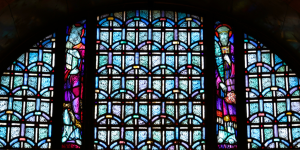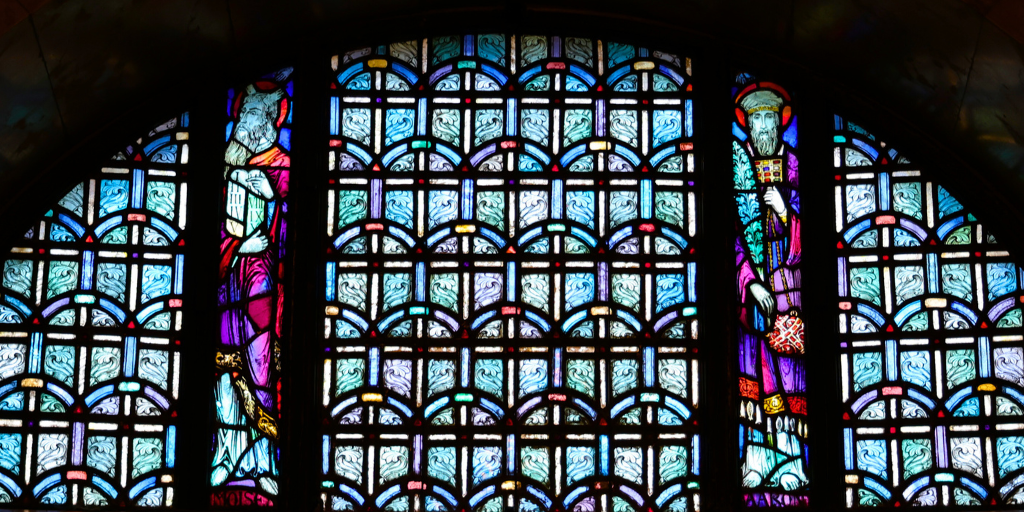
The Bible is full of stories of siblings, from Cain and Abel to James and John. While sibling relationships are sometimes fraught with difficulties, they can also be a great blessing, offering opportunities to strengthen our faith and further the kingdom of God. In this new series, we invite you to read about the siblings of the Bible and what lessons we can learn from their lives, starting with the Old Testament.
Cain and Abel: The First Brothers of the Bible
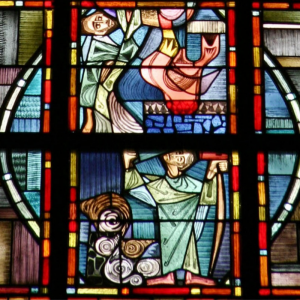
The very first brothers in the Bible, Cain and Abel demonstrate that sin corrupted sibling relationships from the beginning. Cain, the eldest, was a farmer, while Abel was a shepherd. After becoming successful in their vocations, the brothers brought offerings to the Lord: Cain, an offering of fruit, and Abel, a fat lamb from his flock. Because Cain’s offering was not his best, the Lord was displeased and encouraged him to conquer his sinful attitude.
However, Cain was overtaken with fury and killed Abel in the field. When God saw what Cain had done, He condemned him to be a wanderer on the earth, but even still, He showed mercy. The Bible also tells us that God “put a mark” on Cain, so that others would not kill him in retribution and Cain dwelt in the land of Nod.
The story of Cain and Abel demonstrates God’s grace amidst our sin. God gave Cain a second chance, and a third chance, even when he was not repentant or willing to give his best to God. Learn more about Cain and Abel.
Jacob and Esau: Rivals from the Womb
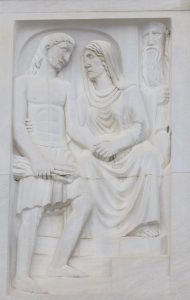
Even before they were born, Jacob and Esau struggled against each other in their mother’s womb. The sons of Rebekah and Isaac, they grew to have very different personalities: Esau was a skilled hunter and a strong worker in the field, while Jacob was quiet and often stayed in the family’s tents. These differences in personality led to favoritism with their parents; Isaac preferred Esau because of his hunting prowess, while Rebekah loved Jacob.
Esau’s carelessness was demonstrated in his exchange of his birthright to Jacob for a bowl of stew, as well as in his poor judgment in marriage. He chose two wives for himself from among the Hittites, and they sowed discord in the family. When Jacob stole Esau’s blessing from their father, he was forced to flee from the enraged Esau, who sought to kill him. Jacob spent 20 years living among his relations, working as a shepherd for his uncle Laban, and taking Laban’s daughters Rachel and Leah as his wives. Eventually the brothers reconciled, and Jacob came and dwelt once again with his family in the land of Canaan.
Though Jacob was not the eldest, God chose him over his brother to carry on the promise made to his grandfather Abraham and father Isaac. God later appeared to Jacob and gave Him the name “Israel.” Along with Abraham and Isaac, Jacob would become known as one of the Old Testament patriarchs. Throughout the Bible, God is referred to as “the God of Abraham, Isaac, and Jacob” — a sign of His favor towards these men and their descendants, from whom would ultimately come the Messiah, Jesus. Learn more about Jacob and Esau.
Miriam, Aaron, and Moses: Old Testament Leaders
Though they each had their faults, this instrumental sibling trio demonstrated strong leadership and fortitude during a time of great adversity for God’s people. Some of the greatest lessons from their lives are shown in their success and failure to fully trust in God and His authority, reminding us of God’s sovereignty over our lives regardless of our strength or weaknesses.
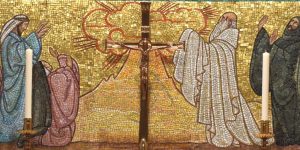
God used Aaron and Moses mightily to plead for Israel before Pharaoh and eventually lead them out of Egypt. But when they reached the wilderness, they faced new difficulties amongst their own people. When Moses went up onto Mt. Sinai to receive the Ten Commandments, the people of Israel came to Aaron with their gold and convinced him to construct a golden calf, which they worshipped. Though Aaron claimed he was honoring God in his actions, in reality, he was afraid to defy the people. Moses, on the other hand, was furious at the idolatry of the people; when he came down from the mountain and saw what they’d done, he destroyed the tablets of the Ten Commandments and ground the statue into powder. This incident shows the difference between Moses’s and Aaron’s relationship with God; though Aaron had faith, he was not as strong in his knowledge and fear of God as Moses.
Like her brothers, Miriam played a significant role in leading the Israelites from Egypt, but she too failed to fully trust in God’s authority. After Pharaoh had ordered the execution of all the male babies, Miriam helped saved Moses by watching him float down the river in a basket and suggesting her mother as a nursemaid for him when Pharaoh’s daughter wanted to take him for her own. Miriam also led the Israelite women in praising God following their escape from the Egyptians. But after their wanderings in the wilderness, both Miriam and Aaron became jealous of Moses and spoke out against him (Numbers 12). They questioned his leadership, claiming that God had also used the two of them to speak to the Israelite people. For her distrust in God’s authority, Miriam was struck with leprosy.
Moses and Aaron would continue to lead Israel throughout their 40 years in the desert. Unfortunately, as a punishment for their disobedience at the rock of Meribah, they never saw the Promised Land. In Numbers 20:12, God told them, “…you did not have confidence in me, to acknowledge my holiness before the Israelites.” Because they doubted Him, they would be doomed to perish in the wilderness. While Aaron died on Mt. Hor, God allowed Moses to view the land from the top of Mt. Nebo before his death.
Ultimately, the story of these siblings demonstrates the importance of trusting in God and His ability to work through us despite our weaknesses. Though they were imperfect leaders, God used them to guide the Israelites to the Promised Land.
Learn more about Moses, Aaron, and Miriam.

